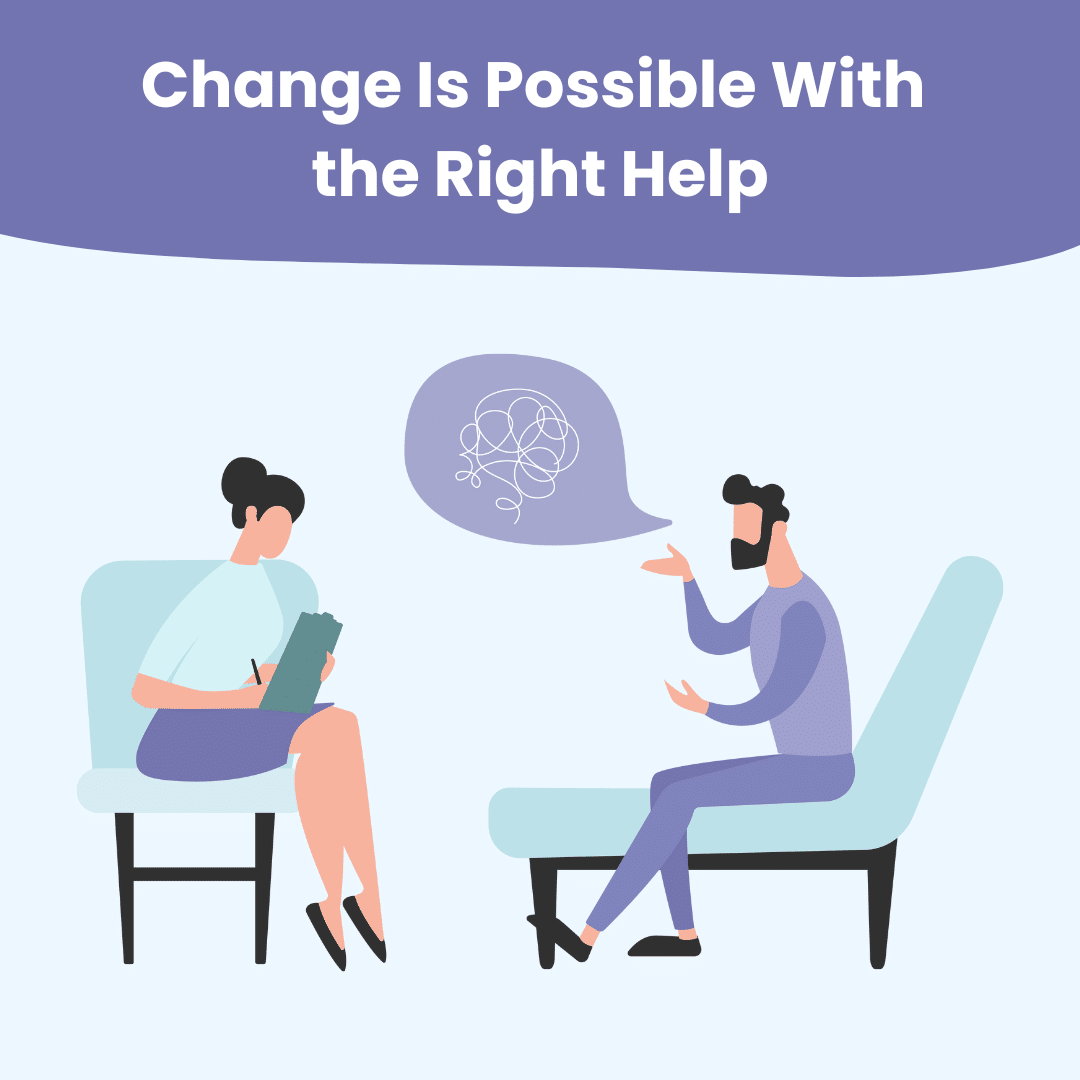
- Updated on 2 July 2024
Tags: Bad therapist signs; what to look out for in a Therapist
Signs of a bad therapist (ie a professional counsellor or psychologist) may not be immediately noticeable. The unpleasant experience may start off as a slight feeling of discomfort. Perhaps you’ve got a nagging suspicion that something is a little “off” in your therapy sessions, but are unable to pinpoint exactly what it is. Others may be very clear about the cause of their discomfort, but wonder if it is a normal experience in therapy that they just aren’t used to.
Maybe you’re curious about what the signs of a bad therapist are, because of all the bad therapist stories you’ve heard from family, friends, or colleagues. Given that the experience in a counselling session differs from individual to individual, coupled with the confidential nature of therapy sessions, it can be hard to compare across different therapists.
There are, however, some basic do’s and don’ts in therapy that are set out by ethical guidelines and formal training programmes. These are foundational competencies that all (good) therapists are aware of and adhere to. This article highlights several red flags regarding how to spot a bad therapist, some more serious than others. Should you experience any of these in therapy, you may consider discussing it with your therapist. Alternatively, you may raise the issue to the organisation or the relevant licensing board in your country.
How to Spot Signs of a Bad Therapist
Here are some ways to spot signs of a bad therapist:
A bad therapist dismisses your experiences.
Your therapist should not be making statements like “you should not be complaining about that”, “it’s not a big deal” or “there are others going through much worse than you”. Therapy is about your experiences, not the experiences of others elsewhere. Even if others are going through “worse”, your experiences and feelings are absolutely valid. If you feel angry, you feel angry. A good therapist will acknowledge your unique experience and feelings.
A bad therapist tells you what to do, by prescribing unsolicited advice or solutions.
Contrary to popular belief, therapists do not provide advice or solutions. Rather, a therapist hears you out and works with you to identify insights and possibilities that you deem best for you given your situation. A therapist should also help you identify your strengths that could be helpful in arriving at your own resolution. You should not be hearing your therapist say, “Quit your job if it’s making you unhappy”, “Just move if you don’t like your neighbours”, or “You should try golf. If it worked for me, it will work for you”. Every situation elicits different considerations for each individual. Providing unsolicited advice or solutions not just disempowers clients and dismisses each client’s unique experience; it presumes that the therapist knows a client’s life better than the client themselves.
A bad therapist is distracted and does not listen to you.
Your therapist should be solely focused on you, and genuinely interested in what you have to say. This is different from having a chat with a friend in a café, where multiple distractions are to be expected. Therapists using the video chat function for online counselling have a duty to ensure that they conduct the session from a location that is private and free from distractions. Your therapist should also not be texting, picking up calls, or multitasking on their laptop as you are speaking. Feeling listened to is a core foundation of therapy.

A bad therapist judges you by their own personal religious, spiritual, political, or cultural beliefs.
Therapy is about you, and how you are coping in relation to your own values and beliefs. A therapist should not impose their own beliefs on you. Doing so insinuates that the therapist’s values and beliefs are superior to yours in some way. Take for instance, a therapist whose religious values state that divorce is wrong. If a client is contemplating divorce, the therapist should find out more about the client’s situation and their thoughts and beliefs regarding divorce. What a therapist should not be saying is, “Of course you shouldn’t get a divorce. Divorce is wrong!”. Neither should the therapist imply this during the counselling session.
A bad therapist breaks confidentiality without a valid reason.
A therapist may sometimes be obligated to break confidentiality when there is risk of harm to yourself or to someone else. In some instances, certain information from counselling sessions is required for legal purposes, such as in the case of court-mandated counselling. However, a therapist should not be chatting with their friends about you over dinner, or posting about your session on social media. A red flag to watch out for is if a therapist shares personal information about other clients with you. Such information could include their names, background information, and their experiences in therapy. If your therapist does this, how can you be assured that your personal information is not being shared with other clients?
A bad therapist demands that you book many sessions.
A therapist’s goal is to stop seeing you eventually. While one session is often insufficient for long-term change, a therapist should not demand that you book multiple sessions with them. Even if you wish to continue with therapy, it should be a decision you arrive at on your own. Keep in mind that you always have the choice to switch therapists, or to pause therapy when you need to. You should not feel obligated to agree with what your therapist is insisting on.
A bad therapist explains concepts in an overly complicated manner.
Therapists would have had extensive training and exposure to various therapeutic concepts and approaches. That doesn’t mean, however, that they should show off their knowledge using jargon and academic terms. The point of therapy is to help you. Any concepts that are explained by the therapist should thus be expressed in simple everyday language that is comprehensible to clients. If a therapist believes that explaining a particular concept would be beneficial for the client, it is the therapist’s duty to also check in with the client after introducing the concept, to see if they have understood it.
A bad therapist spends most of the time in a session talking about their own issues.
While it may be beneficial for the therapist to share a little about themselves in order to genuinely build the therapeutic relationship, the bulk of the time in therapy should be about you. After all, that is why you signed up for therapy in the first place.
A bad therapist attempts to engage in a romantic or sexual relationship with you.
This is a serious violation of ethical codes, and should be reported to the relevant licensing board or organisation. Therapists are trained to adhere to professional boundaries, so as to remain objective when working with you.
A bad therapist tries to be friends with you.
Once again, therapists have an ethical responsibility to maintain professional boundaries with clients. A therapist should not be inviting you to play golf together for leisure, joining your family for a meal, or requesting favours unrelated to therapy. Doing so would constitute a dual relationship which impacts the therapist’s ability to remain neutral during a counselling session. This is the same reason why therapists are unable to provide therapy to their family members, friends, or anyone else within their own social circle. Imagine this: a client says, “I’m really annoyed with my sibling right now”, to which the counsellor, who has met the client’s sibling in an informal setting, responds with, “No way! Your sibling is such an amazing person!”.
A bad therapist is not open to feedback.
Therapists should make you feel comfortable enough to raise any feedback you may have, at any point in therapy. They should also be secure enough not to take things personally. Feedback is a normal part of any healthy therapeutic relationship.
A bad therapist ends the counselling session prematurely.
If the session is scheduled for an hour, the session should last no less than an hour. Occasionally, sessions may start late when therapists are held up by crises or other sessions that run over the scheduled time. However, if your therapist is habitually late, or frequently cancels or misses appointments without a valid reason, it might be time to start looking for a new therapist.
Takeaway
Before jumping to conclusions and labelling someone a bad therapist, consider this: therapists are human. Like all other human beings, therapists have emotions too and do make mistakes from time to time.
Think about the difference between a therapist who yawned twice in a session due to a family emergency the day before, and a therapist who initiates a sexual relationship with a vulnerable client. It may be helpful to ask yourself what you can and cannot tolerate in a therapy session.
This could even be a topic to discuss with your therapist. However, assessing the severity of any ethical violation is important.
Where serious harm has been done, appropriate measures should be taken. This protects not just the client reporting the wrongdoing, but also other clients who may not have come forward for any reason.
Choose a qualified professional Therapist you can trust.

Related Articles
Latest Articles
Recent Posts
- Understanding Employee Assistance Programs in Singapore (And Why Your Company Needs One)
- A Therapist’s Guide to Setting Boundaries with Parents
- Anger Management in Singapore: Top 6 Benefits
- Individual vs Group Counselling in Singapore: What’s Right for You?
- Thinking of Switching Your Therapist in Singapore? Read This First



